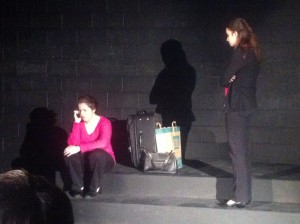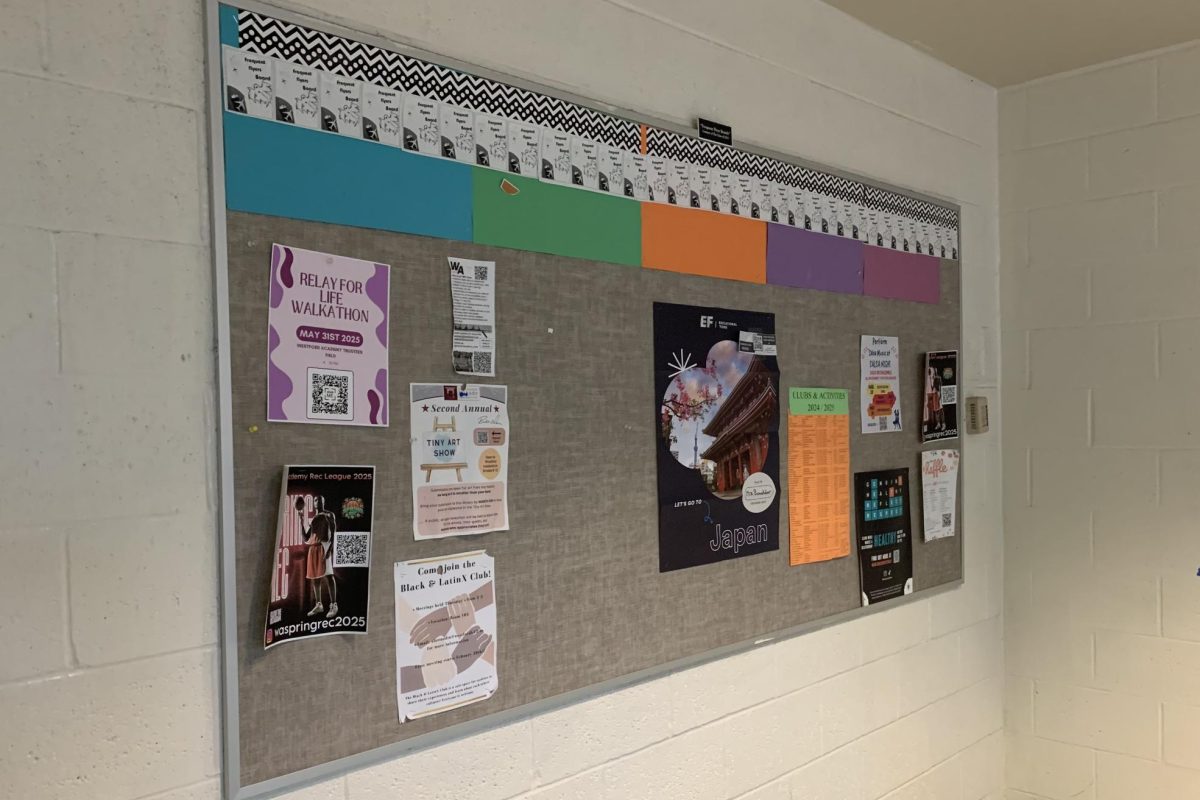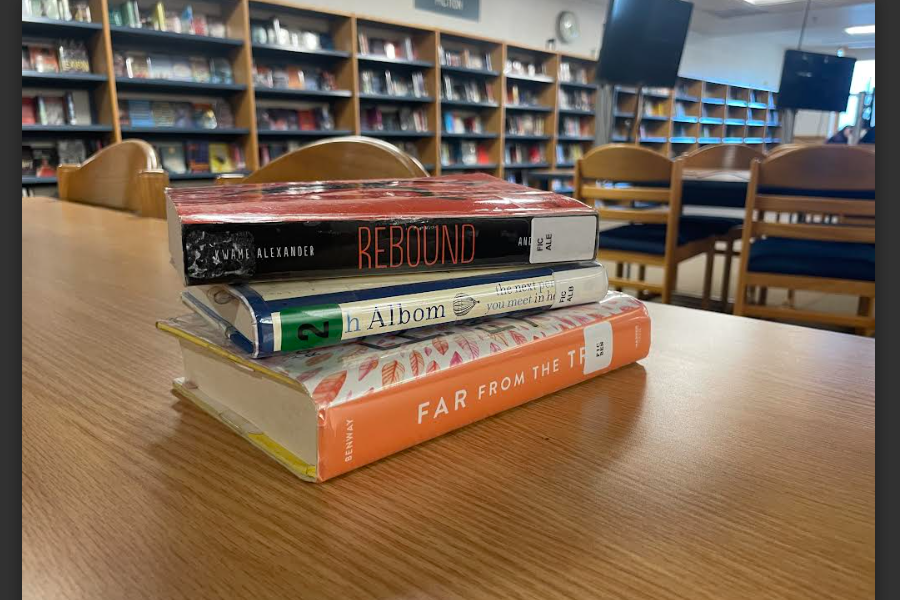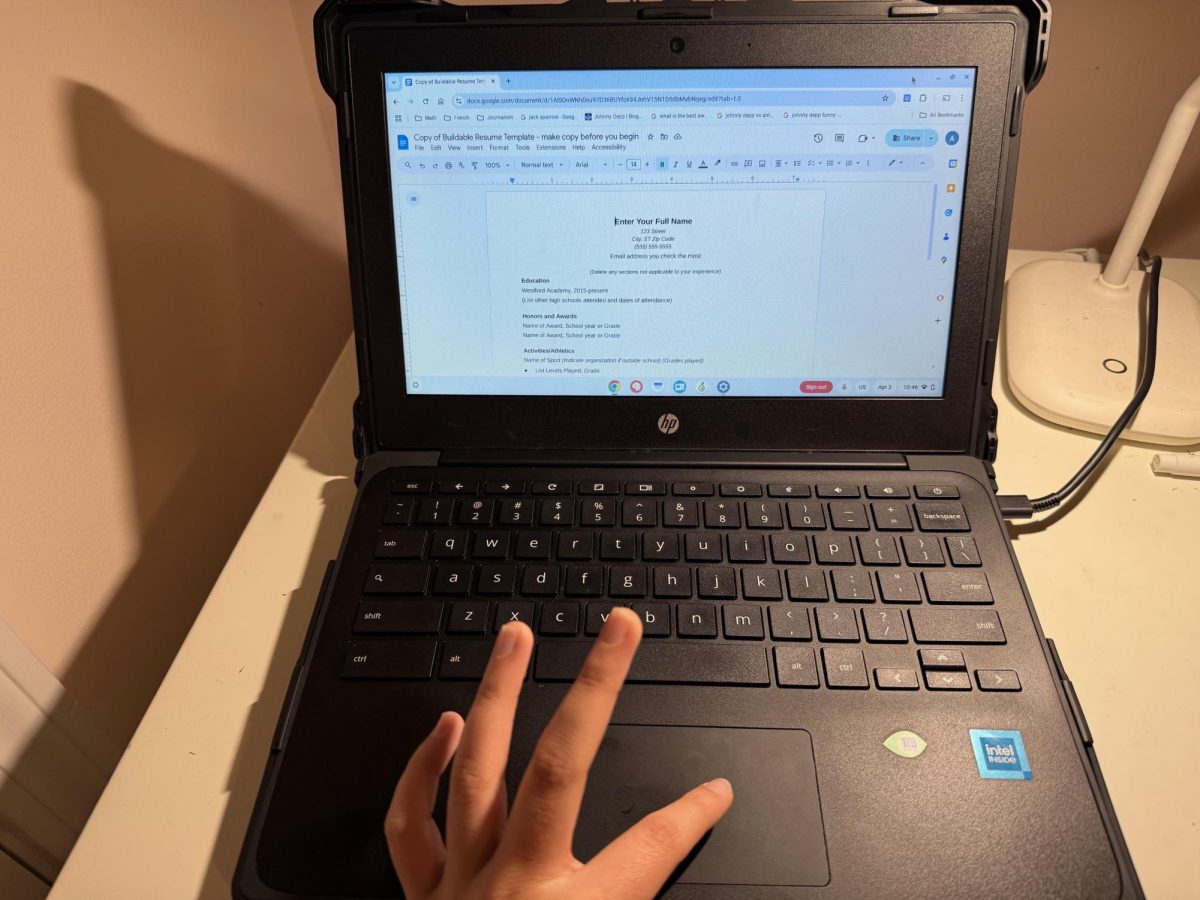By Anastasha Echavarri
News Editor
In a world where society dictates the actions of even the most unique individuals, it is often hard to find a happy medium where one is able to achieve their dreams while following the designated rules of society.
In the play “A Feminine Ending”, a young woman named Amanda Blue whose dreams of becoming a famous composer are subdued when she finds herself choosing between her aspirations and her fiance. Society dictates that marrying a singer on his way to stardom will make her life an extraordinary one, but her desire to become a musician herself has her struggling to find balance in her life.
Written by Sarah Treem, “A Feminine Ending” was a Black Box show this week and was directed by senior Laura Pickersgill.

Amanda is an aspiring oboist and composer trying to make a name for herself in the music industry. But all the greatest composers that Amanda looks up to such as Beethoven, Bach, and Chopin, are all men, which disheartens her. She does not believe that she has the ability to compose because she is a woman, and therefore gives up her dreams of becoming a composer and instead begins to write jingles for an advertising firm in order to support her fiance who is about to become a famous singer.
But throughout the play, Amanda’s confidence builds and she finds that despite the fact that no woman has ever matched up to Beethoven, Bach, or Chopin, she is willing to try, despite what society expects of her.
“A Feminine Ending’ is about finding your place in the world, following your dreams no matter what life throws at you,” said Pickersgill. “[It’s about] looking past the unfairness to what you have control over, and finding ways of making your own way.”
What changes Amanda’s situation is when she begins to visit her mother who lives in a small town in New Hampshire.
Throughout her childhood, Amanda’s mother, named Kim, always supported her and told her that she could do whatever she wanted. Now, as she returns to her hometown as a jingle writer for an advertising firm rather than the composer she dreamed of being, Kim once again instills in her daughter the confidence that she needs to stop being afraid of the possibility of failure.
“Amanda and Kim have this really interesting relationship because they’re basically polar opposites, and yet in several ways they’re really similar,” said freshman Abby Mills, the student who had the part of Amanda Blue in the play.
Through their many conversations, both Amanda and Kim find themselves. Kim finally works up the courage to leave her husband with whom she has fallen out of love. Amanda, following in her mother’s footsteps, realizes that being married is not synonymous with being fulfilled or happy, and leaves her fiance to follow her passion as a musician.
“Everyone has dreamed of living an extraordinary life at some point in their lives, and I think this show has a really good message that in the end it’s not about anybody else’s expectations or rules, that the only thing between yourself and an extraordinary life is your own drive and actions,” said Pickersgill.
But what makes this play especially extraordinary and memorable are its elements of music. Not only is Amanda enamoured with the idea of becoming a musician, but throughout the play music is a character of its own which adds emotion and depth.
Sometimes Amanda plays on the piano or practices on her oboe, and at the very end of the play, it is shown that she is at a music stand, preparing to conduct an orchestra.
In music, a “feminine ending” is where a note is unstressed at the end. However, at the end of the play, it is clear that Amanda is not going to abandon her dreams despite society’s protests against this. The ending she chose for herself is anything but a feminine ending. She chooses to end on a stressed note, one that is strong and powerful.






